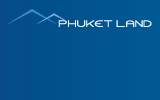Further Reading:
Legals: “Topical Considerations for Property Investment in Phuket by Buyers”
by Desmond Hughes
Thailand has a developing legal, political and economic climate and this requires investor’s advisers to be up to date with the most appropriate considerations that a prospective property investor should take into account from the point of first interest in a property investment until completion of acquisition or investment. This article sets out a summary of key considerations from the perspective of a ‘buyer’.
Land Title Searches: In Thailand, it is necessary to engage lawyers to conduct a thorough check of the history of land title. The land will either be bare, and ready to develop, or there may be construction on it. Regardless, the legality of land title is crucial to the security of investment. It is not appropriate to rely on a third party land title search or an ‘earlier’ title search especially if the party which conducted the search owes no duty of care to you as a client.
Method of Acquisition: Foreigners may legally own buildings in Thailand and that right extends, for tax purposes, to ‘foreign entities’. In relation to land, there will generally be the most common option of leasing the relevant land plot on which the building is constructed or will be constructed and in the current market, more rarely the opportunity for a freehold acquisition which would have to involve the use of a Thai company. There are numerous criteria that you as a prospective investor into a property would have to fulfill to use a Thai company which I summary would comprise of: entering into a partnership with Thai shareholders in respect of the investment; ensuring the company conducts business and is not just a ‘vehicle’ to ‘hold’ land. Other criteria applies, and that is why it is necessary to liaise with the agent and lawyer early on when selecting prospective property.
Leasehold is a simpler way for investors to comprehend security over property assets in Thailand. Leases can be registered for 30 years and the lease can also provide for series of renewals normally of two additional 30 year periods. The quality of the lease; the parties entering into the lease, the actual development and legal corporate structure or standing of the landlord must be considered. The best types of leasehold structure also provide for protection of owners in managed estates through ‘collective participation’ in an owners committee which can control the renewal of a lease. Due diligence into the quality of the structure is necessary.
Access: Aside from physical inspection of the property, the actual legal status of ‘private’ and ‘public’ roads in relation to the property or development where you wish to invest is necessary. If access runs across a third parties land, this can be solved by arranging with the seller and the third party, a ‘registered’ access which in Thailand is referred to as a servitude.
Building and Environmental Regulations: If a property is built or ‘to be built’ there should be an examination of the rules which apply to the relevant area where the property is situated. The issuance of a building permit is not absolutely conclusive as to the legality of a building, but it certainly is an indication that the applicant has at least reviewed the criteria of for building. The construction permit, the ‘zoning’ and restrictions applicable to a plot should all be reviewed as a whole to establish what can and cannot be built on the land. Clever designs and use of land can overcome certain restrictions, legally, if a good architect is employed and briefed appropriately.
Deposits; Sales Contracts; Leases and other Transactional Documentation: In order to secure the property, it is normal to place a deposit. If due diligence is not complete, a nominal deposit can be placed or a more substantive deposit if that deposit is protected or held in the care of the buyer’s appointees subject to due diligence. The full sales contract in Thailand is not standard, as is mostly the case in relation to conveyances in many other developed jurisdictions. Therefore, buyers should consult with their advisers and make clear their expectations and requirements as early as is possible. Commercial matters should be relayed to all parties such as whether fixtures and fittings are included in the contract and the condition and list of such items should be documented. Timing should be disclosed openly by the parties to avoid ongoing friction and delays. If the buyer will take 6 weeks to liquidate funds instead of the more normal 30 day period, then it should normally consider informing all parties but securing the property under contract for that period, as opposed to the contract potentially expiring.
‘Closing’ or Completion: The more organized the parties, the less stressful a completion should be. If foreign entities or foreigners are involved then the appropriate identification documents, translations of corporate documents, powers of attorney and signed agreements (leases in triplicate, in Thai and English for example) should be available. Registration fees and taxes should be calculated and relayed to the parties in advance so that monies can be prepared and available for closing. Post completion, there will also be some final matters to attend to
These are the key issues to be considered as a general overview in relation to a standard property transaction. Experience, ability to cope with commercial demands and factors in conjunction with legal requirements, are amongst some of the qualities required to allow a deal to complete safely, securely and in a professional manner.
Desmond Hughes is a Partner in Belmont Limcharoen based in the Phuket office with offices in Bangkok, Phuket and Koh Samui. Tel: +66 (0) 76 342 882-4 Fax: +66 (0) 76 342 885 Mobile: +66 (0) 89772 5077


